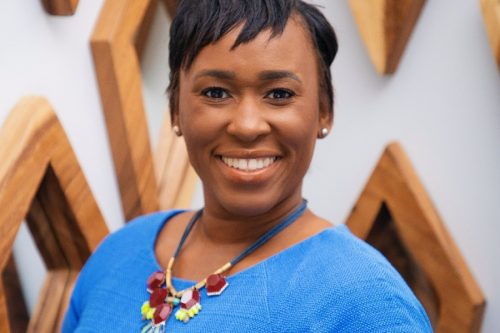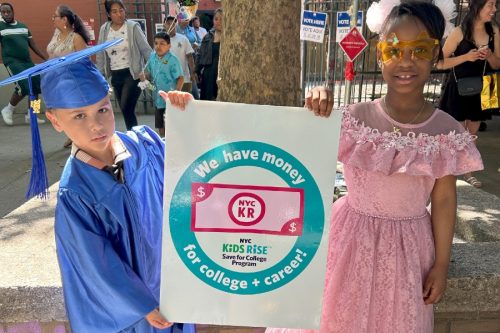
By Eartha Watts Hicks
Leah Abraham is a pioneer of hospitality. She is married to Chef Antonino Settepani, as well as devoted mother to Bilena and Seyoum Settepani.
Leah’s journey as an Ethiopian/Eritrean immigrant interweaves her heritage with her husband’s Sicilian roots as owners of Settepani Harlem, their esteemed authentic Italian restaurant along Malcolm X Boulevard, launched in December 1998.
As a philanthropist, she is a luminary and the epitome of kindness, dedicating her time to several causes, including her longstanding board membership with the Harlem 125th Street Business Improvement Committee and, notably, the Clinton 500 Foundation. Leah’s longstanding and unwavering commitment to her neighborhood reflects her vision of a thriving future for Harlem and, by extension, has subsequently helped shape New York City into what it is today.
Harlem World Magazine: Settepani is an elegant restaurant with exquisite detail and personal touches, like outlets at nearly every table and the purse hooks beneath the counters. So much thoughtfulness went into the establishment’s design. I can see this place has a woman’s touch.
Leah Abraham: To give you an idea, we took over the space in 1998. At the time, my son was still in a stroller, and my daughter was older but barely walking around. This location was two brownstones that we combined into one space, and there had been a fire. This was an abandoned space that nobody wanted, but we did. So, you can imagine the amount of work involved. We had the right combination of know-how, a little bit of money, and dreams—all of the elements to make it happen. This project was not only financially challenging, it was a huge undertaking. But we wanted to open a place people would be proud to have in this community.
HWM: The artwork here is beautiful, as well. This place is chic, perfect for a date, for artists to gather, for club members to meet up, and for small groups to gather for lunch after church. The first thing I noticed was the delectable dessert bar.
LA: This is actually a fourth renovation. For the first renovation, we were just getting it off the ground. At the time, we couldn’t have completed a full restaurant. We went through a lot of chaos, but we knew we had to make it acceptable. And so, we started out with a cafe. Something that customers could enjoy. We made bread, so we sold breads, pastries, sold sliced cakes, which we have never done in any of our other locations. And then fast forward to 2009. There was a recession. We had to find ways to survive all the hurdles to remain in business. There was also the element of safety. We were robbed at gunpoint twice.
HWM: Twice?
LA: Yes, and people were asking why would you stay? Everyone was asking.
HWM: Why did you stay?

LA: We stayed because of our connection with the community. The community really wanted us to stay. Here, we had such a warm welcome. And then, people from the neighborhood came in and said, “Please don’t leave.” That’s when I realized how much we meant to the community. We will always be open. After we were robbed, we stayed open late. We wanted to make a statement. This is our home.
HWM: That takes a lot of courage. I love how you had a vision for the establishment, and you met the community where they were and adapted to what the community was looking for, rather than sticking to your own vision. I think that’s remarkable. Was that a family decision?
LA: It was. When we opened this location, we received such a positive response that this was where we wanted our flagship store to be. Because everyone wanted a place like this in the neighborhood, somewhere they could sit and eat and bring their kids. We had a good product. We had an accessible product, and customers didn’t have to walk through the doors and spend $100. They could find something in here for $2.
The day we opened, it was Christmas time, and a line was outside. I was rushing around, trying to get the place ready. And I had a sign on the door that read ‘opening at 9 o’clock.’ But there was already a line. So, I unlocked the door, and said, “Please give me a few minutes. I want it to be just right.”
And this woman looked at me and said, “Honey, I’ve been waiting for you for 30 years.”
Yes, so there is no greater welcome. We really didn’t know the neighborhood that we were moving into. We just felt that this was hands down the most beautiful boulevard in New York City. And so, we wanted to be here and add to this community.
HWM: If you have been here for over 25 years, you were here before Harlem was chic and trendy. You were here when much of Harlem was in disrepair.
LA: Yes. As I mentioned, we were held up at gunpoint. I don’t know how many shootings we’ve witnessed. Once, I was driving down the street and the children were in the car with me. We drove through some crossfire, and I yelled for the kids to duck. They were scared and crying because they were worried that I would get hurt. Now, that feels like a dream, but it was our reality.
HWM: Aside from the safety issues, what challenges did you face as a woman in business?
LA: Being a woman entrepreneur is juggling, because we are always juggling between running a business and being a mother. I have to be active in my children’s lives. Plus, they were small children when we opened. Motherhood comes with its own challenges and then watching my children grow up in a community that was not always safe. My son was robbed at a young age, which ended up being a big turning point in his life. That completely changed him as a student, as an athlete, and as a person. Not all children grow up in a safe environment. Raising them here gave them the tools to handle themselves and have empathy. My children have the biggest hearts. And that is something you can’t buy. They can sit at any table and fit in. So, I think the best gift I gave my children was raising them in Harlem. This was an education that they can’t get anywhere else.
Also, being a Black woman running a high-end restaurant in Harlem is probably one of the most challenging things I’ve encountered. First, the fact that I am a black woman denies the authenticity of the product because this is an authentic Italian Restaurant, and I am not Italian. Then, I am not a man. How can I own a restaurant?
There are so many challenges to being a woman, including having to be a role model. I understand that I have a huge role within the community and that many see me as a role model because young girls will come to me with questions. That’s a huge responsibility that I’ve had to ease into. I do lend my time to be an encouragement. I had a young girl come to me and say, you know, I want to be just like you. When I hear that, I say, “I am you.” If I can make it, anybody can make it.
I came to this country at the age of 16, but I had a safe place to stay, so I know you have to find someone who trusts you. When I came here, I knew that no matter what and no matter how tough things got, I knew where I’d be sleeping and I knew I was safe. I had a base. That’s all I knew. Remember you have a base.

HWM: When you first came to this country, what were your ambitions at that time? How did your path lead you into the restaurant business?
LA: So, this is nothing I ever expected to do with my life. I married into the business. I came to this country because we were escaping a war. Uganda was invading Ethiopia. This was a safe haven. My father sent us to the U.S. He got us here. But we were all separated. I didn’t speak English. We didn’t have money. There were five of us, all in different parts of the country. And all we knew was that we had to get an education. Somehow, we figured it all out. We are all okay now. But there were no signs that things would be okay when we were going through what we were going through. There was not a clear path. I didn’t have a dream of being here. I didn’t have a dream of being in business in this country. I got married. This was a family business. So, I went into the business. We moved here, and we opened this location. I just knew that I had to succeed. And it wasn’t easy.
Eartha Watts Hicks
Eartha Watts Hicks is a Harlem World Magazine contributing Book Editor the award-winning author of Love Changes, a member of the Harlem Writers Guild, and a New York City literacy ambassador for NYCHA/NAACP. For more information, visit www.linktr.ee/earthatone.
Photo credits: Udo Salters.
Become a Harlem Insider!
By submitting this form, you are consenting to receive marketing emails from: Harlem World Magazine, 2521 1/2 west 42nd street, Los Angeles, CA, 90008, https://www.harlemworldmagazine.com. You can revoke your consent to receive emails at any time by using the SafeUnsubscribe® link, found at the bottom of every email. Emails are serviced by Constant Contact










